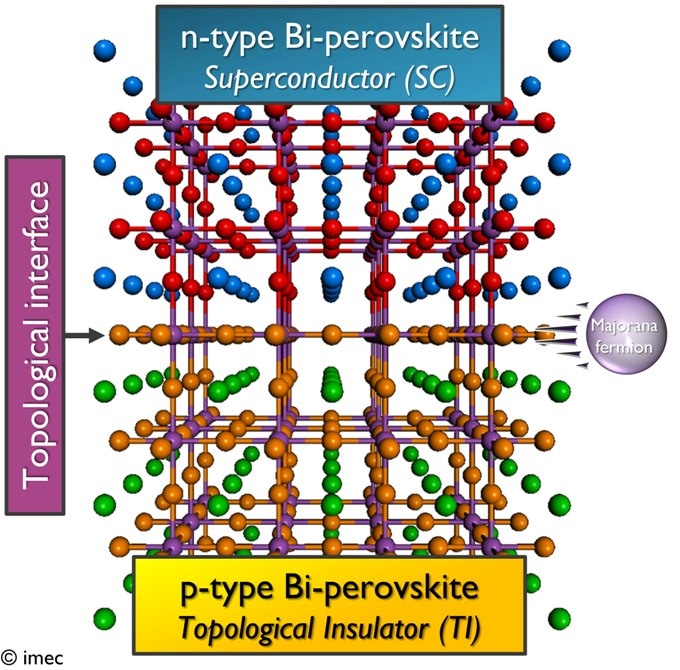Imec, a world-leading research and innovation hub in nanoelectronics and digital technologies, today announces that the European Research Council has awarded Clement Merckling, principal member of technical staff at imec, a Consolidator Grant for working out his project NOTICE.
Groundbreaking idea of this project is the research of novel oxides and experimental realization of topological interfaces to generate Majorana fermions that will lead to fault-tolerant qubits devices – building blocks of the next-generation quantum computers. These “Majorana qubits” are expected to be immune to decoherence – a phenomenon that induce the loss of quantum information. Clement Merckling receives 2.3 million euro for this ambitious 5-year project that might open the path to ‘stable’ quantum devices.
 Groundbreaking idea of the NOTICE project is to use a novel stable oxide material as the basis for both the superconductor and topological insulator material. At the epitaxial interface, Majorana fermions – building blocks for fault-tolerant qubits – will be generated.
Groundbreaking idea of the NOTICE project is to use a novel stable oxide material as the basis for both the superconductor and topological insulator material. At the epitaxial interface, Majorana fermions – building blocks for fault-tolerant qubits – will be generated.
Quantum computing is expected to enable a gigantic improvement in computation capabilities as compared to classical computing. The fundamental building block of a quantum computer is the qubit, a two-level system that obeys the laws of quantum mechanics. Present developments mainly focus on semiconducting quantum dots and superconducting qubits, that hold promising properties for quantum computing and manufacturing. However, these qubits suffer from decoherence. Today, this challenge is being addressed by upscaling the density of qubits (target above 106 per chip) and making use of quantum error correction algorithms.
“The ERC Consolidator Grant allows me to explore the next-generation of qubits – the Majorana qubits,” explains Clement Merckling. “The main challenge in Majorana qubits is to generate Majorana fermions that can hold and preserve a quantum state. The way to do that is to stack a superconductor on top of a material with strong spin-orbit coupling (SOC), such as a topological insulator.” Majorana fermions have been predicted theoretically, and recently, first signatures of their existence have been demonstrated by using different material combinations and device architectures.
Within the project called NOTICE (for Novel Oxides and Topological Interfaces for quantum Computing Electronics), the experienced researcher will follow an innovative route for generating Majorana fermions. This route will answer today’s major blocking points, being the stability and oxidation of the SOC materials, and the defectivity of the interface between the SOC and superconducting materials. Groundbreaking idea is to use novel and stable oxide materials – i.e., a bismuth-based ‘perovskite’ oxide – as the basis for both the superconductor (by p-type doping) and topological insulator (by n-type doping). This material system combination is expected to create a perfect epitaxial interface, at which the Majorana fermions will be generated.” In a final stage, the team will focus including its integration into Si as to enable reliable and scalable Majorana-based quantum devices, paving the way to large scale manufacturability.
“We are very proud that an experienced researcher such as Clement Merckling is awarded an ERC Consolidator Grant and as such gets a unique opportunity to establish a team and carry out a frontier research project,” said Luc Van den hove, president and CEO of imec. “Quantum computing is a very promising area of innovation for Europe, holding a huge industrialization potential. The ability to develop the technology and put it into industrial use across a wide spectrum of applications is one of Europe’s major challenges. This project in particular is expected to revolutionize quantum computing on the longer term. But it will also open new horizons for materials science and epitaxy – two fields that support major breakthroughs in many other domains.”